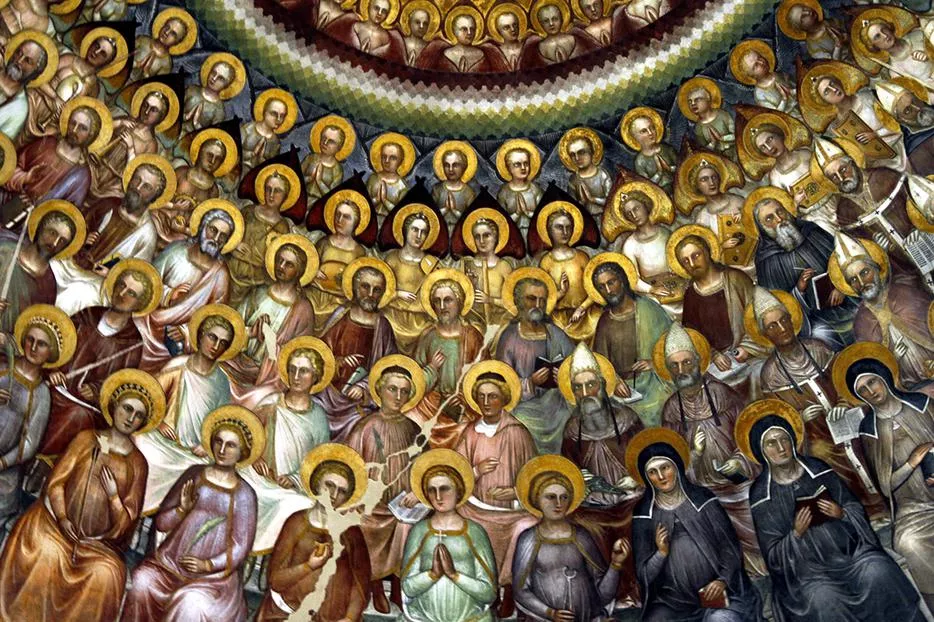
Praying to saints in Catholicism reflects a deep communion between the living and the heavenly Church. Saints, as holy intercessors, are not worshipped but venerated for their closeness to God. Catholics seek their prayers, trusting in their powerful advocacy before the throne of grace. This practice, rooted in scripture and tradition, strengthens faith and fosters a familial bond in Christ’s body.
When Catholics "pray to saints," they’re asking the saints in heaven to intercede—pray for them—to God. It’s not worshiping saints but seeking their help as friends and role models who are close to God. The Catechism of the Catholic Church calls this the "communion of saints" (CCC 946-962).
No, Catholics distinguish between worship (latria), which is for God alone, and veneration (dulia), which honors saints for their holiness. Praying to saints is like asking a friend on earth to pray for you—just with heavenly friends. Idolatry would be treating saints as gods, which the Church forbids (CCC 2112-2114).
It’s rooted in Scripture and Tradition. Hebrews 12:1 describes a "cloud of witnesses" surrounding us, suggesting the saints are aware of us. Revelation 5:8 shows heavenly beings offering prayers to God, implying intercession. Early Christians, like those in the catacombs, also asked martyrs to pray for them.
Catholics do pray directly to God, but they also see value in community prayer. Just as you might ask a pastor or friend to pray for you, asking saints leverages their closeness to God. The Church teaches that their prayers amplify, not replace, our own (CCC 2683).
The Church believes saints, being in heaven with God, share in His omniscience to some extent. They’re not bound by earthly limits and can hear our requests through God’s power. This isn’t proven by science but trusted as part of the mystery of eternal life (CCC 956).
All souls in heaven are saints, but Catholics typically pray to canonized saints—those the Church has officially recognized for their heroic virtue and miracles attributed to their intercession. Examples include St. Mary, St. Peter, and modern saints like St. Teresa of Calcutta.
Mary, as the Mother of Jesus, holds a special place (hyperdulia)—above other saints but below God. Her role in salvation history (Luke 1:38) and her intercession at Cana (John 2:1-11) make her a powerful advocate. Catholics see her as the "Queen of Saints" (CCC 966).
Catholics believe so, pointing to countless testimonies of answered prayers—like healings or guidance—linked to saints’ intercession. The Church investigates miracles for canonization, seeing them as signs of saints’ prayers being effective through God’s will.
Yes, many Protestants reject praying to saints, arguing it lacks explicit biblical support or risks detracting from Christ as the sole mediator (1 Timothy 2:5). Catholics counter that Christ’s mediation isn’t diminished but shared, as we’re all called to pray for each other (CCC 960).
Read the Catechism of the Catholic Church (sections 946-962), books like The Lives of the Saints by Butler. Talking to a priest or joining a parish discussion can also deepen your understanding.